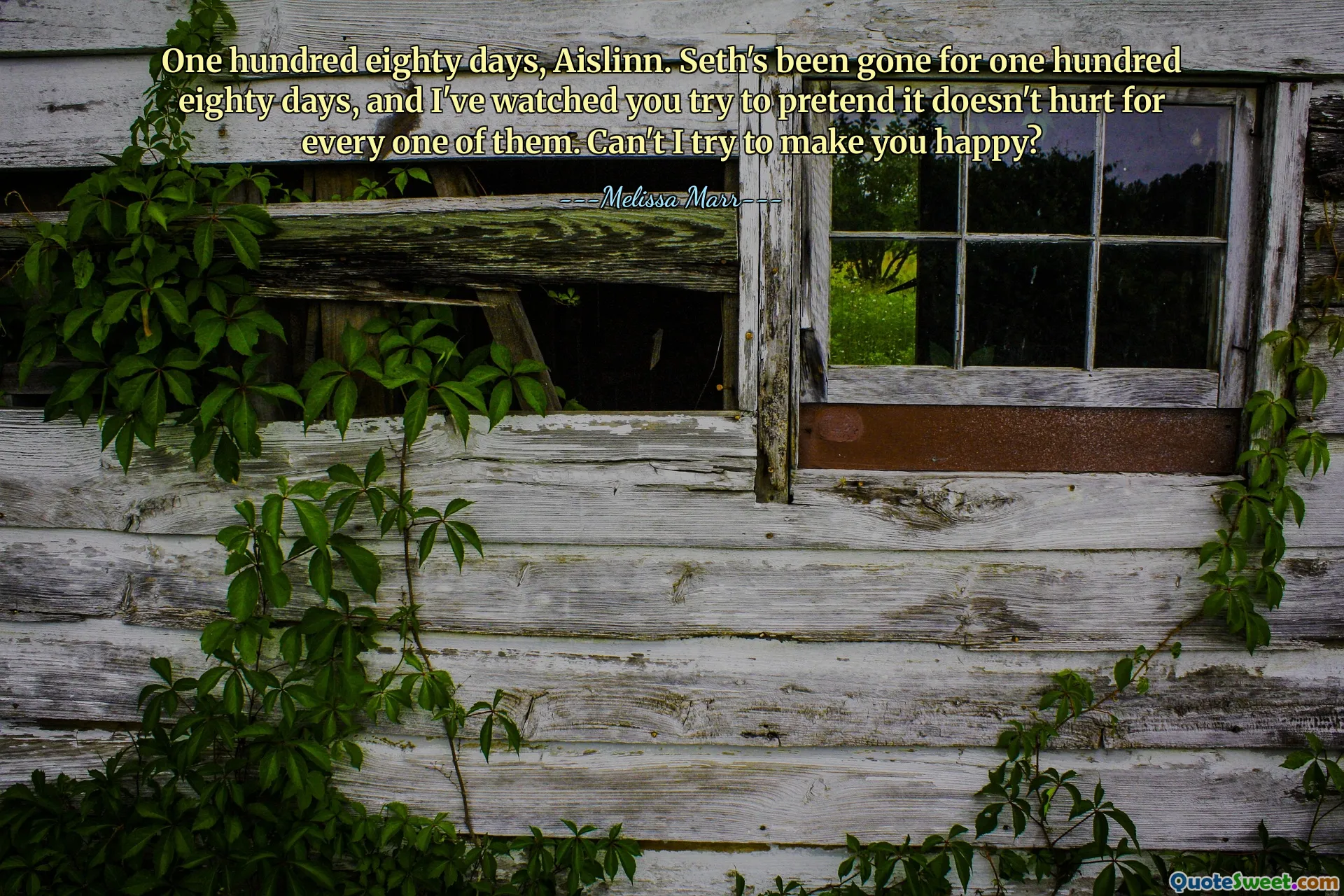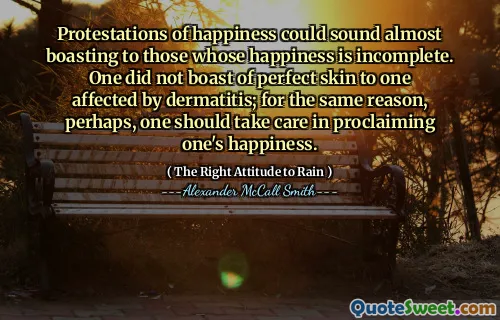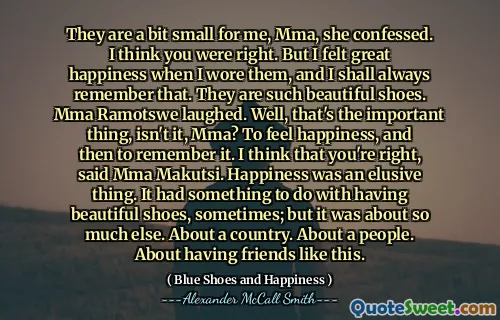
One hundred eighty days, Aislinn. Seth's been gone for one hundred eighty days, and I've watched you try to pretend it doesn't hurt for every one of them. Can't I try to make you happy?
In this poignant quote, there is a raw exposure of grief and denial that resonates deeply with anyone who has experienced loss. The specifics—"one hundred eighty days"—highlight not just the passage of time but also the stubbornness of pain that refuses to fade. The speaker's observation of Aislinn's attempt to mask her sorrow touches a universal truth: the human tendency to hide true feelings to protect oneself and others from the heavy reality of emotional pain. There is a vulnerability in acknowledging this facade, and an unspoken plea for allowing support and happiness despite loss.
What strikes me particularly in this passage is the tender balance of empathy and desire to heal. The speaker's question, "Can't I try to make you happy?" reflects more than just a personal wish; it’s an invitation to let go of the pretense and embrace possible joy amid grief. It calls attention to the complexity of moving forward after a loved one departs—a journey that is not linear but fraught with the tension between remembrance and the pursuit of happiness.
This quote encapsulates the bittersweet reality that healing does not equal forgetting and that happiness can sometimes be found in the caring presence of others during the darkest periods. The emotional dialogue speaks volumes about love, pain, and the human capacity for resilience. It reminds me that while time can be a healer, the empathy and offerings of those around us are often the lifelines that help us navigate enduring sorrow.











